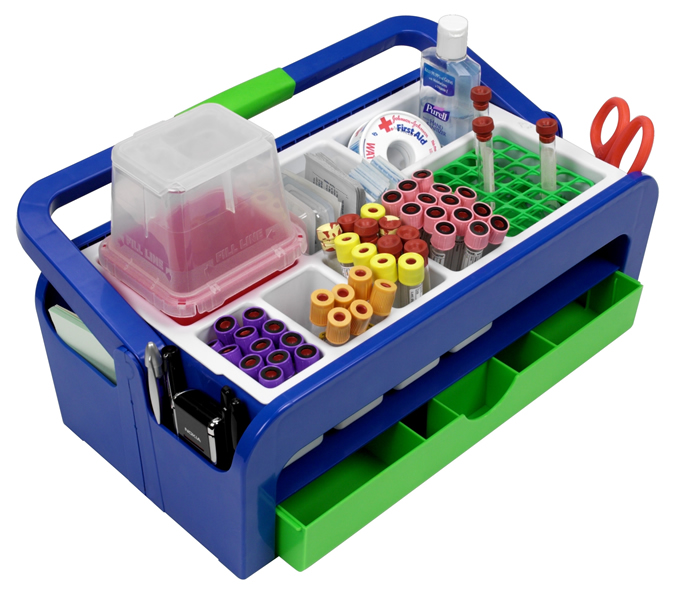How to become a Skilled Phlebotomist: Complete Guide to Phlebotomist Course & Career opportunities
embarking on a career as a phlebotomist is a rewarding choice for those interested in healthcare, patient interaction, and diagnostic testing. As a vital member of medical teams,phlebotomists are responsible for collecting blood samples that are crucial for diagnosis and treatment. If you’re wondering how to become a skilled phlebotomist,this comprehensive guide covers everything from required training to career prospects-so let’s dive in!
What Is a Phlebotomist? An Overview
A phlebotomist is a trained healthcare professional who specializes in drawing blood for tests,transfusions,research,or donations. Their role is critical in hospitals, laboratories, clinics, and blood donation centers. The skill set includes technical proficiency, excellent patient communication, and adherence to safety protocols.
Why Choose a Career as a Phlebotomist?
- Meaningful impact: Supporting diagnosis and treatment.
- Job stability: High demand across healthcare settings.
- Relatively rapid training: Phlebotomy courses can be completed in a few months.
- Good earning potential: Competitive salaries with opportunities for growth.
- flexible work environment: Opportunities in hospitals, clinics, mobile blood drives, and more.
how to Become a Skilled Phlebotomist – Step-by-Step Guide
1. Understand the Basic Requirements
Before enrolling in a phlebotomy course, ensure you meet general prerequisites:
- High school diploma or GED
- Good physical health and stamina
- Strong communication skills
- Ability to handle blood and needles responsibly
- Background check (might potentially be required)
2. Enroll in a Recognized Phlebotomy Course
Select a comprehensive phlebotomist course accredited by recognized organizations like the National Accrediting Agency for Clinical Laboratory Sciences (NAACLS) or similar bodies. A good course will cover:
- Anatomy and physiology
- Venipuncture techniques
- Blood collection safety and hygiene
- Lab safety protocols
- Patient interaction and communication skills
Many courses are available online or in-person,with durations ranging from 4 to 12 weeks.
3.Complete Hands-On Training and Internships
Practical experience is vital. Look for programs offering supervised clinical practice or internships in medical facilities. This helps build confidence and technical skills.
4. Obtain Certification and Licensure
Certification enhances employment prospects and professional credibility. The most recognized certification is the Certified Phlebotomy Technician (CPT) offered by the American Red Cross or the National Phlebotomy Association.
Requirements typically include completing a training program and passing a certification exam. Some states also require specific licensing-check local regulations.
5. Develop Practical Skills & Soft Skills
- Practice venipuncture techniques regularly.
- Enhance patient communication and empathy.
- Learn to handle difficult veins or uncooperative patients.
- Maintain strict safety and hygiene standards.
Career Opportunities for Skilled Phlebotomists
Once certified, you can explore various career avenues:
- Hospitals and clinics
- diagnostic laboratories
- Blood donation centers
- Mobile phlebotomy services
- Research institutions
- Travel or seasonal blood drives
Salary and Job Outlook
The demand for phlebotomists is steadily growing due to increased healthcare needs. According to the U.S. Bureau of Labor statistics, the median annual salary for phlebotomists was approximately $36,000 as of 2023, with potential to earn more with experience, certifications, and specialization.
| Experience level | Average Salary | Job Outlook |
|---|---|---|
| Entry level | $30,000 – $35,000 | High demand |
| Experienced | $40,000 – $50,000 | Steady growth |
| specialist roles | Up to $60,000 | Increasing opportunities |
Benefits of Becoming a Skillful Phlebotomist
- Fast training programs leading to quick entry into the workforce
- High job satisfaction from helping patients and communities
- Opportunities for specialization,such as pediatric or neonatal phlebotomy
- Potential for career advancement into related healthcare roles
Practical Tips for Aspiring Phlebotomists
- Choose accredited courses to ensure quality training.
- Practice your venipuncture skills diligently during training.
- Enhance your soft skills like communication and patience.
- Build professional relationships through internships and networking.
- Stay updated on new blood collection techniques and safety protocols.
Case Study: A Prosperous Transition into Phlebotomy
Jane’s Journey: After completing a 6-week phlebotomy course and obtaining certification, Jane secured a position at a local hospital.By practicing her skills and focusing on patient comfort, she quickly became a trusted team member. Her dedication led to specialization in pediatric blood draws, significantly increasing her earning potential and job satisfaction.
First-Hand Experience: What It’s Really Like
Many new phlebotomists find the initial blood draws challenging but rewarding. Patience, empathy, and technical proficiency are key. Over time, as you gain confidence, you’ll develop efficiency and ease, making the job enjoyable and fulfilling.
conclusion
Becoming a skilled phlebotomist is an achievable goal with the right training, certification, and dedication. The healthcare industry always requires competent blood collection professionals, opening ample career opportunities.Whether you’re just starting or looking to advance your skills, the path to becoming a proficient phlebotomist offers stability, growth, and the chance to make a real difference in patients’ lives.
Now that you understand the complete process-from enrolling in a phlebotomy course to exploring career options-you’re well on your way to a successful healthcare career as a skilled phlebotomist!
Meta Title
How to Become a Skilled Phlebotomist: Complete Guide to Phlebotomist Course & Career Opportunities
Meta Description
Learn how to become a skilled phlebotomist with our comprehensive guide.Explore phlebotomy courses, certification tips, career prospects, and practical advice for success in healthcare.
